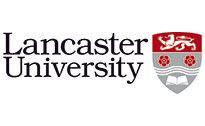
Quality Management Professional Preparation Course - Certified Program
Course ID: 2508245901232EGI
Course Dates : 24/08/25 Course Duration : 5 Studying Day/s Course Location: Cairo, Egypt
Language: Bilingual
Course Category: Professional and CPD Training Programs
Course Subcategories: Leadership and Management Excellence
Course Certified By: * Projacs Academy
* Professional Training and CPD Programs
Certification Will Be Issued From :
KSA
Course Fees: £2,940.22
Vat Not Included in the price. VAT may vary depending on the country where the course or workshop is held.
Click to Pay
Date has passed please contact us Sales@e-s-hub.com
Course Information
Introduction
Quality management is the backbone of operational excellence, driving organizations toward sustained success in an increasingly competitive global marketplace. Rooted in frameworks such as Total Quality Management (TQM), ISO 9001 standards, and Six Sigma methodologies, quality management ensures that products, services, and processes consistently meet or exceed customer expectations. For professionals tasked with overseeing these functions, mastery of quality management principles is not merely advantageous—it is essential. This course addresses the growing demand for skilled practitioners who can bridge gaps between theoretical knowledge and practical implementation, fostering a culture of continuous improvement within their organizations.
One of the most pressing challenges facing industries today is the misalignment between strategic goals and operational execution. Organizations often struggle to maintain compliance with evolving regulatory requirements while simultaneously optimizing efficiency and minimizing waste. These challenges are compounded by a lack of standardized practices and insufficient training among employees responsible for quality assurance. By equipping participants with a comprehensive understanding of quality management systems, this program seeks to close these gaps and empower professionals to drive transformative change. The course draws on established theories like Deming’s PDCA (Plan-Do-Check-Act) cycle and Juran’s Trilogy to provide a robust foundation for addressing real-world issues.
Consider the case of a multinational manufacturing company that faced significant losses due to inconsistent product quality. After implementing a structured quality management system led by certified professionals, the organization achieved a 25% reduction in defects and a marked improvement in customer satisfaction scores. Such examples underscore the tangible benefits of investing in quality management expertise—not only for individual career advancement but also for organizational resilience and growth. Participants will learn how to replicate similar successes in their own contexts through evidence-based strategies and tools.
The relevance of quality management extends beyond traditional manufacturing sectors; it permeates industries such as healthcare, finance, education, and technology. In healthcare, for instance, quality management plays a critical role in patient safety and care delivery. Similarly, financial institutions rely on rigorous quality controls to mitigate risks and ensure regulatory compliance. As industries continue to evolve, the ability to adapt quality management practices to diverse environments becomes increasingly vital. This course prepares participants to navigate such complexities by blending timeless principles with contemporary trends, including digital transformation and sustainability initiatives.
For individuals, mastering quality management offers numerous advantages, from enhanced employability to leadership opportunities. Employers value professionals who can analyze data, evaluate performance metrics, and design solutions that align with organizational objectives. On a broader scale, organizations benefit from improved productivity, reduced costs, and strengthened reputations. By fostering a proactive approach to problem-solving, this course enables participants to contribute meaningfully to their teams and stakeholders.
Ultimately, the "Quality Management Professional Preparation Course" is designed to equip participants with the skills and confidence needed to excel in their roles. Through interactive sessions, case studies, and hands-on exercises, learners will emerge ready to tackle the dynamic challenges of modern workplaces. Whether you are new to the field or seeking to refine your existing competencies, this program provides a pathway to achieving excellence in quality management.
Objectives
By attending this course, participants will be able to:
Analyze key quality management frameworks, including TQM, ISO 9001, and Six Sigma, and assess their applicability in various organizational contexts.
Evaluate organizational processes using statistical tools and methodologies to identify areas for improvement.
Design and implement corrective actions to address identified non-conformities and enhance process efficiency.
Apply risk management techniques to mitigate potential threats to quality and compliance.
Develop strategies for fostering a culture of continuous improvement within teams and departments.
Interpret regulatory requirements and integrate them into quality management systems to ensure compliance.
Create actionable plans for leveraging technology and innovation to support quality initiatives.
Who Should Attend?
This course is ideal for:
Quality assurance managers, engineers, and analysts seeking to deepen their expertise and achieve certification.
Project managers and team leaders responsible for overseeing process improvements and ensuring adherence to quality standards.
Consultants and auditors involved in assessing and enhancing organizational quality systems.
Professionals in regulated industries such as healthcare, pharmaceuticals, and finance who require a strong grounding in compliance and quality control.
Individuals aspiring to transition into quality management roles, regardless of prior experience.
While no prerequisites are required, the course is particularly suited for intermediate learners with some exposure to quality-related concepts. Beginners will find the foundational modules accessible, while advanced practitioners can leverage the advanced topics and practical applications to refine their skills further.
Training Method
• Pre-assessment
• Live group instruction
• Use of real-world examples, case studies and exercises
• Interactive participation and discussion
• Power point presentation, LCD and flip chart
• Group activities and tests
• Each participant receives a 7” Tablet containing a copy of the presentation, slides and handouts
• Post-assessment
Program Support
This program is supported by:
* Interactive discussions
* Role-play
* Case studies and highlight the techniques available to the participants.
Daily Agenda
The course agenda will be as follows:
• Technical Session 08.30-10.00 am
• Coffee Break 10.00-10.15 am
• Technical Session 10.15-12.15 noon
• Coffee Break 12.15-12.45 pm
• Technical Session 12.45-02.30 pm
• Course Ends 02.30 pm
Course Outlines
Foundations of Quality Management
Overview of Quality Management Principles and Theories
Introduction to Key Frameworks: TQM, ISO 9001, and Six Sigma
Understanding Customer Expectations and Stakeholder Needs
Role of Leadership in Driving Quality Initiatives
Day 2:
Tools and Techniques for Process Improvement
Data Collection and Analysis Methods
Application of Statistical Tools (e.g., Pareto Charts, Control Charts)
Root Cause Analysis and Problem-Solving Strategies
Implementing the PDCA Cycle in Real-World Scenarios
Day 3:
Risk Management and Compliance
Identifying and Assessing Risks in Quality Systems
Regulatory Requirements Across Industries
Ensuring Compliance with ISO Standards
Developing Audit Plans and Conducting Internal Audits
Day 4:
Continuous Improvement and Innovation
Kaizen Philosophy and Its Practical Applications
Lean Management Techniques for Waste Reduction
Integrating Technology into Quality Processes
Case Studies: Successful Continuous Improvement Projects
Day 5:
Building a Culture of Excellence
Leadership Strategies for Promoting Quality Awareness
Employee Engagement and Training Programs
Measuring and Sustaining Organizational Performance
Preparing for Certification Exams and Future Challenges



















































